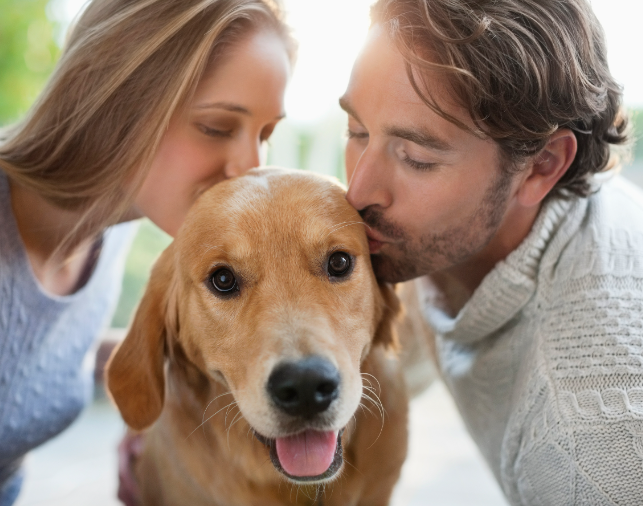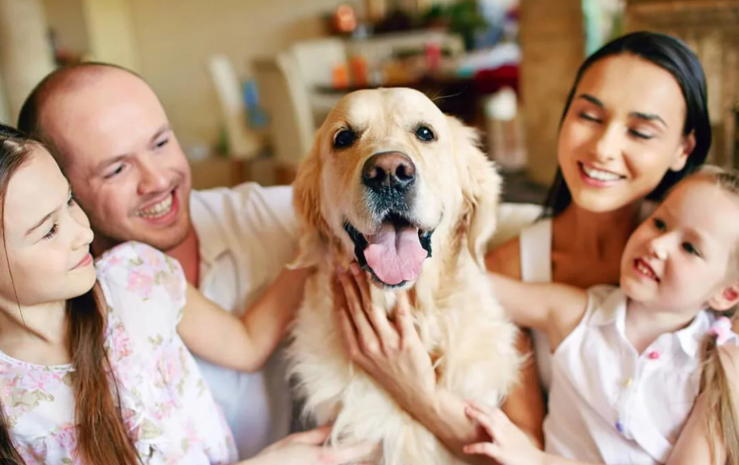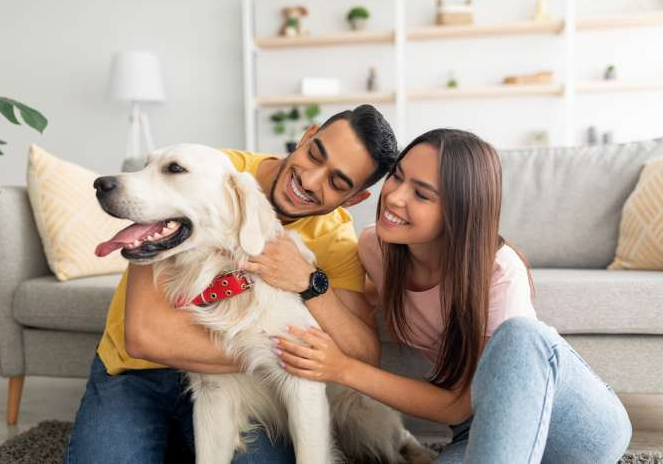Love is one of the most powerful emotions humans experience, and it often surprises us how deeply we can feel it for animals, especially dogs. For thousands of years, dogs have shared their lives with us—not as strangers but as companions, guardians, helpers, and friends. In many cases, people find themselves more emotionally bonded to their dogs than to other humans. This phenomenon is not just sentimental exaggeration. It has roots in psychology, biology, culture, and the everyday experiences we share with our four-legged friends. Exploring why so many of us love dogs more than humans uncovers fascinating truths about loyalty, unconditional affection, and the unique human-animal connection that has shaped societies across centuries.
From the moment a wagging tail greets us at the door to the quiet comfort of a dog curled up by our feet at night, dogs consistently give us something many human relationships cannot always guarantee: a sense of unwavering acceptance. Unlike humans, who often judge, criticize, or carry hidden agendas, dogs show their feelings openly.
Their joy is transparent, their loyalty unquestionable, and their affection limitless. It is no wonder many people feel safer and more genuinely loved in the company of dogs than in the sometimes complicated presence of other people.

The bond between dogs and humans began thousands of years ago when wolves first approached human settlements in search of food scraps. Those wolves that displayed less aggression and more friendliness gradually became domesticated, giving rise to the dogs we know today. From that ancient partnership, a deep emotional connection was born. Early humans depended on dogs for hunting assistance, protection, and companionship. In return, dogs received food, safety, and warmth. Over time, the relationship evolved beyond practicality into something emotional and spiritual. Today, many people view their dogs as family members, not merely pets. They celebrate birthdays for them, post photos of them on social media, and grieve deeply when they pass away. This emotional elevation of dogs to family status explains why love for them often feels stronger and more reliable than love for fellow humans.
Psychologists suggest that one reason people love dogs so deeply is because of the nature of canine affection. Dogs are emotionally honest. When they are happy, they wag their tails, lick our hands, or jump with joy. When they are sad, they retreat quietly or whimper for attention. Their emotions are raw and visible, without hidden layers. Humans, on the other hand, often mask their true feelings, putting on social masks or pretending to feel differently for personal gain or social approval. Dogs do not do this. Their honesty creates a trust that feels refreshing and rare in a world filled with human complexities. This trust allows people to let down their guard and love their dogs without fear of betrayal.

Another factor that makes people love dogs more than humans is the role of unconditional acceptance. A dog never cares how much money you have, what clothes you wear, or how successful you appear to others. They do not measure your worth based on societal standards. What they value is simple: kindness, attention, and companionship. This unconditional love contrasts with human relationships, which are often tied to expectations, disappointments, or misunderstandings. With dogs, love is pure and straightforward. You give them care, and they give you their heart. This simplicity makes the bond feel stronger and more dependable than many human relationships.
Science even backs up this connection. Research shows that when humans and dogs interact, both release oxytocin, often called the “love hormone.” This chemical plays a role in bonding between mothers and infants, couples in love, and friends who share trust. The fact that it is also triggered between humans and dogs highlights just how deeply ingrained this interspecies bond has become. When people look into their dogs’ eyes, their brains react in a way similar to looking into the eyes of a loved one. This neurological response explains why affection for dogs often feels as powerful—sometimes even stronger—than the affection we feel for humans.

The role of companionship also cannot be overlooked. Loneliness is one of the greatest struggles of modern life. Many people live far from family or find themselves isolated due to busy lifestyles, work demands, or personal challenges. Dogs fill this void in remarkable ways. They provide constant presence, listen without interruption, and give affection without requiring explanations. For someone feeling isolated, a dog’s companionship can be life-changing. It offers a sense of belonging that rivals, and sometimes surpasses, what human relationships provide. The growing popularity of therapy dogs and emotional support animals is evidence of this unique role dogs play in mental health and emotional stability.
Cultural portrayals of dogs also shape why people love them so much. Literature, films, and art have long celebrated the loyalty and bravery of dogs. Stories like “Hachiko,” the Japanese dog who waited years for his deceased owner, or movies like “Old Yeller” and “Marley & Me” show how profoundly dogs touch human lives. These stories highlight a truth that resonates with millions: dogs embody loyalty, sacrifice, and devotion in a way few humans consistently can. By seeing dogs as symbols of unconditional love and bravery, people strengthen their personal emotional connections with them.
Even the daily interactions we share with dogs foster love. A morning walk, a game of fetch, or the simple act of feeding them creates a rhythm of care and companionship. This routine builds trust and affection over time. Unlike human relationships that may falter from neglect or misunderstanding, the dog-human bond thrives on consistent care. When you feed a dog, they do not just take the meal and leave; they show gratitude with wagging tails and affectionate looks. This visible appreciation reinforces the cycle of love and strengthens the emotional bond in ways human interactions sometimes fail to achieve.
Dogs also bring out the best in people. Caring for a dog encourages responsibility, patience, and empathy. People often find themselves becoming more active, more compassionate, and more emotionally open because of their dogs. A person may feel frustrated with human conflicts, but when their dog greets them joyfully after a hard day, their mood softens, and they find perspective. Dogs remind us to slow down, enjoy simple pleasures, and love unconditionally. This transformative effect is a major reason people feel more connected to dogs than to fellow humans.

Of course, loving dogs more than humans does not mean people reject human relationships. Rather, it highlights how dogs fulfill emotional needs in ways humans sometimes cannot. A dog’s loyalty does not waver when times are hard. They do not abandon you for mistakes or flaws. They simply remain by your side, offering comfort in silence or joy in play. That reliability creates an emotional safety net that many people crave, especially in a world where human interactions can be unpredictable.
The medical and therapeutic benefits of dogs also strengthen the love people feel for them. Studies show that petting a dog can lower blood pressure, reduce stress hormones, and boost overall well-being. Hospitals, nursing homes, and schools often invite therapy dogs to comfort patients and students because their presence has a calming effect. For many, this kind of healing power creates gratitude that translates into deep love. When a dog eases your pain, anxiety, or sadness, it becomes much more than an animal—it becomes a partner in your personal health journey.
Dogs also teach important life lessons. Through them, people learn about forgiveness, living in the moment, and cherishing small joys. Unlike humans, dogs do not dwell on the past or worry excessively about the future. They embrace the present with enthusiasm. When you throw a ball, they run after it with full excitement. When you return home, they greet you as if it is the happiest moment of their day. Observing this behavior inspires people to adopt similar attitudes, making life feel richer and more meaningful. This ability to teach us how to live better is another reason people love dogs with such intensity.
On a deeper level, dogs connect to the human desire for loyalty and trust. Throughout history, betrayal and broken trust have caused some of the greatest human sorrows. Friendships can dissolve, romantic relationships can fail, and even family ties can weaken. Dogs, however, remain steadfast. Their loyalty is not conditional on circumstances or changing moods. They are faithful through thick and thin, and this quality resonates with a core human longing for stability and trustworthiness. To many, this makes dogs feel like more reliable companions than fellow humans.
Generationally, love for dogs has only grown stronger. In today’s society, dogs are not just companions but also social connectors. People form communities around dog parks, pet clubs, and online groups dedicated to canine care. These connections, centered around shared love for dogs, often feel more supportive and positive than other human interactions. Thus, dogs not only provide direct companionship but also serve as bridges to meaningful social experiences, reinforcing why they are so deeply cherished.
The grief people experience when a dog passes away reveals the depth of this bond. Losing a dog can feel as devastating as losing a human loved one, and sometimes even more so. This profound grief underscores how deeply woven dogs are into the fabric of human lives. People do not simply see them as pets but as partners, confidants, and family. The intensity of the love is reflected in the intensity of the loss, showing that the affection for dogs rivals, and sometimes surpasses, human love.
Ultimately, the reason people love dogs more than humans lies in a combination of loyalty, unconditional acceptance, emotional honesty, and healing companionship. Dogs meet us where we are, without judgment or pretense, and love us simply because we are their humans. They enrich our lives, improve our health, and bring out the best in our character. In a world where human relationships can be complex and fragile, the straightforward devotion of a dog feels like a rare treasure. Loving dogs deeply is not about choosing them over humans but about recognizing the extraordinary gift they give us: the experience of pure, unconditional love.
And perhaps that is the most important lesson of all—dogs remind us what love can and should feel like. They show us that love does not have to be complicated, conditional, or filled with expectations. It can be as simple as a wagging tail, a trusting gaze, and a heart that beats in harmony with our own.
